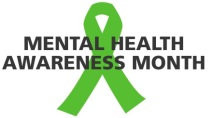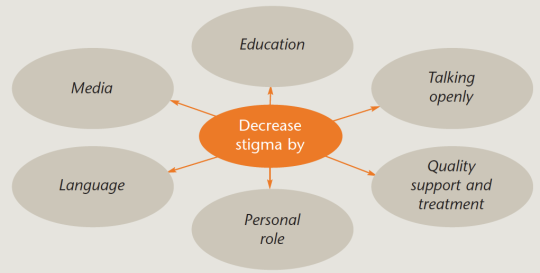The importance of a diagnosis
Monday, May 16, 2016 15 Comments
Name it to Tame it
"Label Stigma" is very OLD thinking© Madelyn Griffith-Haynie, CTP, CMC, ACT, MCC, SCAC
May is National Mental Health Awareness MonthWill this NEVER die?
Do we "label" eyes brown, green or blue? Would the color of anybody's eyes change simply because we don't put a name to that color for fear of subjecting them to preconceived notions about eyes (or color)?
If some narrow-minded person has a prejudice against people with light eyes, does identifying the color of those eyes as "blue" make the slightest difference what-so-ever?
How about height and weight "labels?"
SURELY nobody really believes that as long as we don't define size by measurement we can pretend everybody is exactly the same — even though we can easily see that they aren't.
- Is there some evolutionary advantage to pretending that identifying certain characteristics specifically isn't relevant – or important?
- Does it really change anybody's self-identity or position in the universe to find out exactly how tall they are?
- Does it change how we think about our role in the world to know how much we weigh?
And yet . . .
Labelling theory, prominent during the 1960s and 70s, with some modified versions still currently popular, has long asserted the exact opposite.
It postulates that, once "labeled," individuals are stripped of their old identities as new ones are ascribed to them — and that the process usually leads to internalizing this new identity and social status, taking on some kind of assigned role with its associated set of role expectations.
And society seems to like to go along with this BS!!!
When I look around, the most comprehensive internalization I see is the result of the self-identification with STIGMA.
Out of the fear of having their children "labelled" with a mental illness, too many parents avoid taking their kids for diagnosis and treatment – because they don't want their children to have to suffer the stigma of a diagnosis.
Out of that same fear, many otherwise sensible adults – who would certainly go for treatment if what they suspected was wrong with them were physical – are leading limp-along lives because they refuse to accept diagnosis and treatment for anything that concerns their mental health. Few realize that they've actually internalized the very stigma they think they are avoiding.
MY point of view
As I see it, the reticence to accept mental health "labels" for fear of pigeon-holing or stereotyping allows society as a whole to remain in serious denial about the crying need to stand up and be counted, joining together to sling a few other labels that desperately need to be slung – like intolerant, bigoted, small-minded, parochial and provincial, to name just a few.
And then there's the label that is my personal favorite to describe a particular kind of tool I'd like to call a spade: BULLY!
I'm calling out mental health stigma for what it is:
SMALL MINDED IGNORANCE!
(unless, of course, you want to label it cowardice)
Don't forget that you can always check out the sidebar
for a reminder of how links work on this site, they're subtle ==>
Isn't it TIME we ended mental health stigma?
 Nearly 44 million American adults, along with millions of children, struggle with "mental health" conditions each year, ranging from anxiety, depression, bipolar disorder, schizophrenia, ASD, OCD, PTSD, TBI to ADD/EFD and more.
Nearly 44 million American adults, along with millions of children, struggle with "mental health" conditions each year, ranging from anxiety, depression, bipolar disorder, schizophrenia, ASD, OCD, PTSD, TBI to ADD/EFD and more.
According to NAMI (the National Alliance on Mental Health), nearly 1 in 5 adults in the United States have experienced impaired mental health in the last year alone, and 21% of all prisoners have a recent history of a mental health condition.
And I'll bet you a year's free coaching that those statistics represent only the tip of the mental health iceberg.
Yes, as President Obama said in his inspiring 2016 Mental Health Awareness Proclamation, "we have made progress expanding mental health coverage and elevating the conversation about mental health." Still, too many people with mental illnesses suffer in silence rather than get the help they need.
- A great many of the remaining individuals afflicted will never seek help because of embarrassment and fear of judgement.
- Many of those who do seek diagnosis and treatment often keep their condition a well-guarded secret because of the very real fear of negatively impacting the impression of their ability to perform well at a job.
- Still others will seek out diagnosis but will be afraid to avail themselves of pharmaceutical treatment because of the stigma around "taking the easy way out" by popping a pill!
It seems to me that mental health STIGMA has been allowed to run rampant!
 People suffering from even common mental health diagnoses have been put in a position of shame because of their supposed mental "shortcomings" — and every single person who passes on the stigma or fails to call it out as bad, wrong and awful when they witness it has put them there.
People suffering from even common mental health diagnoses have been put in a position of shame because of their supposed mental "shortcomings" — and every single person who passes on the stigma or fails to call it out as bad, wrong and awful when they witness it has put them there.
- A person doesn't change who they are simply because they've sought out and accepted a diagnosis that explains some of their challenges . . .
at least not any more than distinguishing that I am someone with brown eyes, a height of five feet, eight inches, and a weight of one hundred and thirty-five pounds means I suddenly must self-identify with a particular group of other 5'8, 135 pound, brown-eyed women.
- Nor do those distinguishing characteristics necessarily say anything else about the members of my particular group. We might have practically everything in common or nothing at ALL in common otherwise.
- The ONLY thing changed by diagnosis is that an individual is finally eligible to begin the process of obtaining effective treatment for whatever it is that is making their life more difficult than it would be otherwise.
When you think about it that way, doesn't the stigma around the mental health "distinctions" seem outrageously silly? Because that's ALL a diagnosis really is — a distinction that helps us separate the screws from the nails so that we can reach for the right tool in the box.
Let's ALL stop being silly – and band together to END mental health stigma. NOW!
© 2016, all rights reserved
Check bottom of Home/New to find out the "sharing rules"
—————————————————————————————————————————————
As always, if you want notification of new articles in this Series – or any new posts on this blog – give your email address to the nice form on the top of the skinny column to the right. (You only have to do this once, so if you've already asked for notification about a prior series, you're covered for this one too). STRICT No Spam Policy
IN ANY CASE, do stay tuned.
There's a lot to know, a lot here already, and a lot more to come – in this Series and in others.
Get it here while it's still free for the taking.
Want to work directly with me? If you'd like some coaching help with anything that came up while you were reading this Series (one-on-one couples or group), click HERE for Brain-based Coaching with mgh, with a contact form at its end (or click the E-me link on the menubar at the top of every page). Fill out the form, submit, and an email SOS is on its way to me; we'll schedule a call to talk about what you need. I'll get back to you ASAP (accent on the "P"ossible!)
—————————————————————————————————————————————-
You might also be interested in some of the following articles
available right now – on this site and elsewhere.
For links in context: run your cursor over the article above and the dark grey links will turn dark red;
(subtle, so they don't pull focus while you read, but you can find them to click when you're ready for them)
— and check out the links to other Related Content in each of the articles themselves —
Related articles right here on ADDandSoMuchMore.com
(in case you missed them above or below)
- Zebras, hoof-beats and Dr. House: Differential Diagnosis
- Differential Diagnosis – Part 2
- What's my Beef with Sir Ken Robinson
- Variations on ADD-ADHD
- If the Shoe Doesn't Fit, Don't Blame the FOOT!
Other supports for this article – on ADDandSoMuchMore.com
A Few LinkLists by Category (to articles here on ADDandSoMuchMore.com)
- The Optimal Functioning (Challenges) Series of articles
(about the Inventory & articles from each category)
- When you are NEW to ADD (or this blog/Attentional Struggles/ADD Coaching)
- Variations on ADD-ADHD
Related Articles 'round the net
- Should mental health issues be discussed at school? (great points from a reader)
About Diagnosis
- The Importance of a Diagnosis | Asperger's version
- Ordering Chaos: The Importance of mental health diagnosis | BPD
- Somatic Symptoms: Mental Health Approach and Differential Diagnosis | NY State Dept of Health AIDS Institute
- The Importance of Your Diagnosis | Psychology Today
- Diagnosis of Mental Illness Hinges on Doctor As Much As Symptoms | Behavior Health Digest, via. Seattle Times
- ADHD or Not? Why a Diagnosis Matter | WebMD
- The importance of differential diagnosis in neurodevelopmental disorders: Implications for IDEA | APA Divisions – The School Psychologist
Stop Stigma
- Labeling and Stigma | healthknowledge.org.uk
- If it's wrong, then it's wrong
- The Stigma of Silence Ends…Now
- Why We Need to Stop the Mental Health Stigma
- Solving Stigma – A Family Fight
- More than a Label (Bi-Polar)
- David's Story (Stigma, schizophrenia & suicide)
- STIGMA – And Mental Illness (various)
- Pull Yourself Together
Mental Health Awareness Posts – 2016
- Presidential Proclamation — National Mental Health Awareness Month
- What to do When Someone You Know May Have a Mental Health Problem
- May is Mental Health Awareness Month (ECC Reference)
- May is Mental Health Awareness Month (Autism Speaks)
- May is Mental Health Awareness Month (great infographic)
- May is Mental Health Awareness Month (Southern Laced – more inforgraphics)
- May is Mental Health Awareness Month (MHA-NYC – lots of stuff!)
BY THE WAY: Since ADDandSoMuchMore.com is an Evergreen site, I revisit all my content periodically to update links — when you link back, like, follow or comment, you STAY on the page. When you do not, you run a high risk of getting replaced by a site with a more generous come-from.
^ed



No comments:
Post a Comment